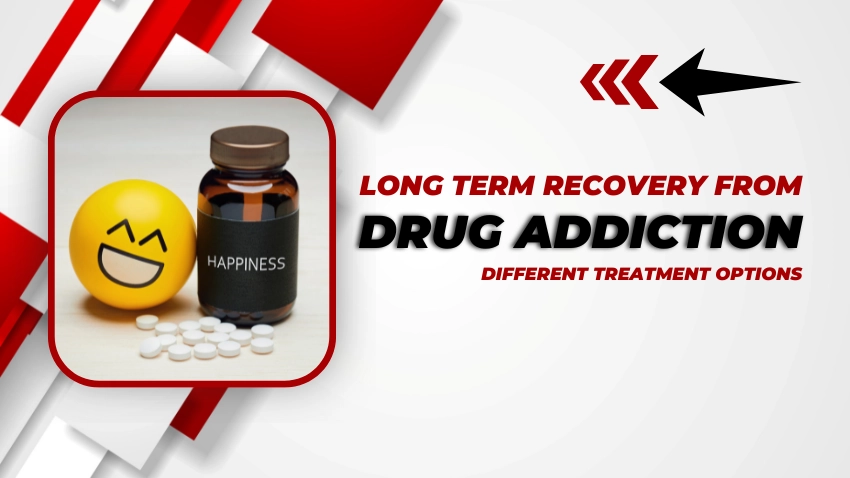Do you feel that you are trapped in addiction? Remember that long-term recovery is possible. But the right treatment and support is the main key. There are a variety of treatments available for addicted individuals. These treatments include both inpatient and outpatient programs.
In this article, we will discuss the reasons that why people become addicted, different treatments to recover from addiction, how to navigate them, and what steps to create an effective plan for long-term recovery.
Why Do People Become Addicted?
Addiction is a complex issue of society. It is difficult to pinpoint the exact reasons of addiction. Generally, there are various factors that play a vital role in the addiction of individuals. These are biological, psychological, environmental, and social factors. Genetics or brain chemistry is included in biological factors. Psychological factors such as Unresolved trauma or mental health issues are considered as psychological factors. Environmental and social factors are lack of supportive relationships or living in an area that is exposed to drugs or alcohol. All of these can lead a person to addiction.
Types of Treatments to Recover from Addiction
There are different treatment options available to recover from addiction but there is a different treatment for different addicted persons. Treatment option is chosen according to the condition of addiction and the lifestyle of addicted individual. Selection of right treatment method plays an effective role in the long-term recovery from addiction.
The most common types of treatments are:
1. Inpatient Addiction Treatment
Inpatient addiction treatments are those treatments in which patient living at an addiction rehab center for long time period. This treatment is recommended for individuals with severe addiction. In this treatment, addiction specialists monitor the patient and provide 24/7 care.
2. Outpatient Addiction Treatment
In outpatient addiction treatments, patient attends regular scheduled appointments at an addiction rehabilitation center or clinic. Individuals visit the addiction rehabilitation center multiple times in a week to receive addiction treatment and therapy.
3. Counseling
Counseling is an important component of any type of addiction treatment program. Addiction counselors work with patients and identify the causes of their addiction. They develop healthy coping skills and create a plan for long-term recovery.
4. Medication Assisted Treatment
Medication-assisted treatments are used to reduce cravings and withdrawal symptoms. This treatment is usually used in combination with counseling, support groups, and lifestyle changes.
Navigating Treatment Options
When it comes to navigating the different types of addiction treatments available, it’s important to be informed and know what options are out there. Here are some ways to get started:
CREATE AN EFFECTIVE PLAN FOR LONG-TERM RECOVERY
You can also visit the website to grab CBD and marijuana cards for holistic treatment of the addicted.
Talk to Your Doctor
Your doctor is a valuable source of information and can help you understand the different treatment options available. They can also provide referrals to addiction specialists and rehab centers.
Research Addiction Treatment Programs
Researching addiction treatment programs online can help you find out more about the various types of treatments available and how they can help you achieve long-term recovery.
Ask for Referrals
If you know someone who has gone through addiction treatment, asking them for referrals to rehab centers or clinics can be a great way to find out which programs work best for different individuals.
Create an Effective Plan for Long-Term Recovery
Once you have identified the right treatment options for your individual needs, it’s important to create an effective plan for long-term recovery. This includes setting realistic goals, establishing a support system, and creating healthy habits and routines.
Setting realistic goals is key to staying on track with your recovery journey. These goals should be specific, measurable, attainable, and relevant to your situation. It’s also important to establish a support system of family, friends, and professionals who can help you stay on track.
Creating healthy habits is essential for long-term recovery. This includes things like eating healthy meals and exercising regularly. Finally, taking part in activities that bring joy and purpose to your life can help you stay motivated and committed to your recovery.
Conclusion
Dealing with addiction is a difficult journey, but with the right treatment options and support system in place, individuals can achieve long-term recovery from addiction. It’s important to be informed about the different types of treatments available and how they can help you create an effective plan for successful long-term recovery. With the right guidance and dedication, anyone can overcome addiction and achieve a healthy, fulfilling life.






